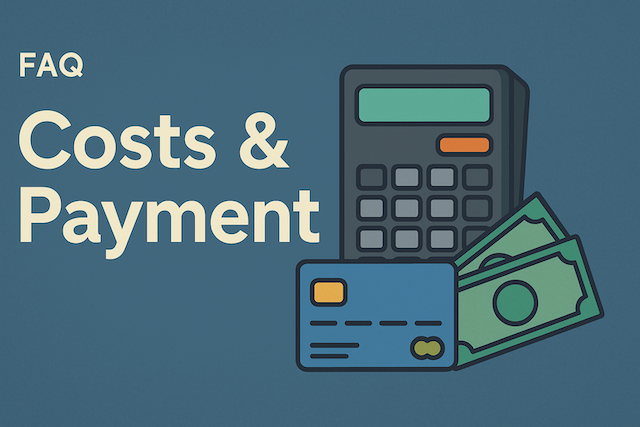What Payment Methods Are Available?

Contents
- What Payment Methods Are Available?
- 1. Standard Method: Bank Transfer (in US Dollars)
- 2. PayPal / Credit Card (with 4.5% Handling Fee)
- 3. On-Site Payment (for Exceptional Cases)
- 4. Local Fees: Paid in Philippine Pesos (₱)
- 5. Can I Pay in Installments?
- ✅ Summary
- Final Tip
- ✅ Summary: Be Financially Ready for a Smooth Start
What Payment Methods Are Available?
At 3D ACADEMY, we aim to provide flexible and convenient payment options for students from around the world. Whether you’re enrolling in a short-term 1-week course or a longer 3-month program, it’s important to understand how and when to pay for your tuition and other fees.
Here is a complete guide to all accepted payment methods, including tuition, dormitory fees, and local on-site payments.
1. Standard Method: Bank Transfer (in US Dollars)
The most common method for paying tuition and dormitory fees is via bank transfer in US Dollars (USD).
Once your application is approved and your invoice is issued, we will provide you with our bank account details. The invoice will include:
-
Tuition fee
-
Dormitory fee
-
Registration fee (usually $100)
-
Total payable in USD
Please ensure that the payment covers all applicable bank fees so that the full invoice amount reaches us. Delays in confirming your enrollment may occur if the transferred amount is short due to bank handling fees.
If you live in a country where USD payments are difficult, please let us know. In some cases, we can assist you with currency exchange advice or alternative methods.
2. PayPal / Credit Card (with 4.5% Handling Fee)
For students who prefer to use a credit card, we accept payments via PayPal, which supports major cards like Visa, MasterCard, and AMEX. However, please note:
-
A 4.5% service fee will be added to cover PayPal transaction costs.
-
This option is typically used in situations where a bank transfer is not possible or time is limited before departure.
-
We will issue a custom PayPal link with your invoice amount plus the handling fee.
This method is fast and convenient, especially for last-minute bookings, but is slightly more expensive due to the extra fee.
3. On-Site Payment (for Exceptional Cases)
Although we recommend full pre-payment before arrival, we understand that some students may have special circumstances. For this reason, we can accept cash payment on-site in USD only if pre-approved.
-
This is allowed only for short-term students or those with last-minute travel schedules.
-
You must bring the exact amount in clean, undamaged US dollar bills.
-
Please notify our team in advance if you plan to pay on-site.
We do not recommend relying on international money transfers after arrival, as they can take several days and may incur additional costs.
4. Local Fees: Paid in Philippine Pesos (₱)
While tuition and housing are paid in USD, some fees must be paid on-site in cash. These include:
| Item | Amount (Estimated) |
|---|---|
| SSP (Special Study Permit) | ₱11,040 |
| Weekly Admin Fee | ₱500/week |
| Dormitory Deposit | ₱4,500 (up to 19 weeks) / ₱9,000 (20 weeks or more) |
| VISA Extension Fee | Applicable if staying more than 30 days |
| ACR-I Card | Applicable if staying more than 59 days |
| Utility / Textbook Fees | Varies |
Please prepare ₱20,000–₱25,000 in Philippine Pesos for your first week to cover these initial local fees and basic expenses.
Currently, all local fees must be paid in cash, but we are working on enabling credit card payments on-site in the future.
5. Can I Pay in Installments?
For short-term programs (1 to 4 weeks), we do not accept installment payments. Full payment is required before or upon arrival.
However, if you are enrolling in a longer-term course (e.g., 3 months or more) and need a flexible payment plan, please contact us directly. We may be able to arrange installment payments in certain cases, especially for returning students or those applying early.
Note: Any installment plan must be agreed upon before arrival, and late payments may result in suspension of services.
✅ Summary
To make your study abroad experience stress-free, we offer a variety of payment methods tailored to your needs:
-
Preferred: Bank transfer in USD
-
Alternative: PayPal/credit card (with 4.5% fee)
-
Emergency: Cash on arrival (by request only)
-
Local fees: Paid in Philippine Pesos (cash only)
We advise completing your payment as early as possible to secure your spot and avoid delays. If you have any questions or specific circumstances, feel free to reach out to our support team—we’re always here to help.
Final Tip
If you’re traveling to the Philippines for the first time, a little financial preparation goes a long way.
We strongly recommend bringing at least $50 to $100 USD or ₱3,000 to ₱5,000 Philippine Pesos in cash for immediate expenses upon arrival—such as transportation, meals, SIM card, or emergency purchases. Many local shops and taxis do not accept credit cards, especially late at night or near the airport.
You should also bring an international debit or credit card (preferably one with low foreign transaction fees). Make sure to notify your bank in advance that you will be traveling, to avoid your card being blocked for security reasons.
While Cebu has many ATMs and currency exchange services, it’s best not to rely entirely on withdrawing money after arrival, as airport ATMs may be temporarily out of service or have withdrawal limits.
By preparing your finances in advance, you can focus on settling into your dorm, attending orientation, and meeting new friends without the stress of searching for cash or resolving payment issues.
A smooth financial start makes for a smooth academic experience—so don’t underestimate this small step!




